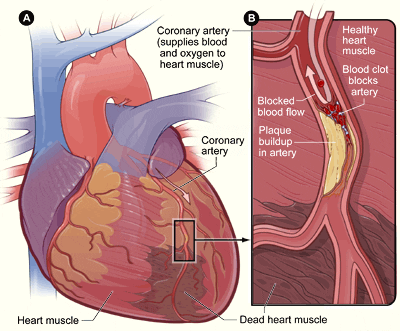FDA Rallies Around Pradaxa with New Study, Still No Antidote
A review by the FDA finds no additional risk of myocardial infarcation (MI) or a heart attack when Pradaxa (dabigatran) is compared to Coumadin (warfarin). An MI occurs when blood suddenly stops flowing to parts of the heart injuring the heart muscle.
This latest study is trying to push Pradaxa as the drug of choice to replace warfarin, the standby that has been used by patients with non valvular atrial fibrillation (AF) for more than 50 years. This study, which was conducted by the Food and Drug Administration, involved data from more than 134,000 Medicare patients. The FDA researchers were looking for any elevations in the risk of gastrointestinal (GI) bleeding, bleeding in the brain, stroke, MI and death. When compared to warfarin, Pradaxa patients had a lower risk of those events, however, there was an increase in the risk of GI bleeding among Pradaxa users. Based on these results, the FDA is not recommending the product label be altered for Pradaxa.
The FDA frequently sounds like a cheerleader for a drugmaker and in this case it really seems to be behind an improved picture for Pradaxa.
 “We still consider Pradaxa to have a favorable benefit-to-risk profile and have made no changes to the current label or recommendation for use,” according to an FDA press release.
“We still consider Pradaxa to have a favorable benefit-to-risk profile and have made no changes to the current label or recommendation for use,” according to an FDA press release.
Pradaxa, like warfarin, is an anticoagulant drug prescribed to patients who need their blood thinned following a stroke, heart attack or surgery. Back in 2012 the FDA noted a large number of post-marketing reports of bleeding problems among Pradaxa users, including GI bleeding and intracranial hemorrhage.
Drugmaker Boehringer Ingelheim produced a large clinical trial called RE-LY which concluded that the rates of serious bleeding were roughly comparable between the two drugs. Ingelheim and the FDA interestingly conclude that warfarin’s adverse events are “likely underreported compared to events occurring with the more recently available Pradaxa,” though why that would be is not clear.
It’s interesting that neither study mentions that there is still no antidote to Pradaxa to stop uncontrolled bleeding when compared to warfarin. With warfarin, vitamin K can be taken to stop the blood thinning effect. While it may be easier to take Pradaxa because it does not need to be closely monitored in the blood, there is no way to rapidly reverse the action of thinning the blood. That can leave people in a life-threatening situation. More than 500 have died using Pradaxa according to the Institute for Safe Medical Practices.
The company announced last November it was working a specific antidote for the reversal of Pradaxa, but to date, it has not been announced or released.
Share This


